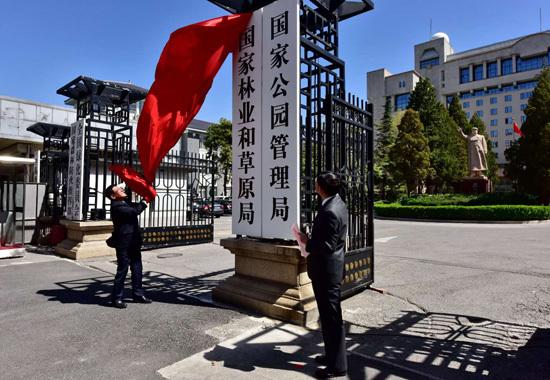To improve efficiency and boost economic vitality, the central government has been working on separating government functions from those of State-owned forestry enterprises since 2015.

National Forestry and Grassland Administration (Photo: China Daily)
In an ongoing process lasting more than three years, the functions of 706 institutions and 51,000 forestry enterprise staff members have been transferring to the local governments in three major forestry regions — the provinces of Heilongjiang and Jilin, and the Inner Mongolia autonomous region — an official from the National Forestry and Grassland Administration told a news conference on Monday.
Li Zhihong, deputy head of the administration's forest resources management department, said communities had formed and flourished on the basis of the forests in those regions. Before the reform, forestry enterprises were set up to manage timber resources and assume some functions of local government by providing public services such as education, electricity and police.
"As timber resources have been gradually depleted, commercial logging is completely forbidden," Li said. "To find new economic driving forces, forestry enterprises should have the work of social services offloaded to become professional companies."
Through years of reform, the average annual income of forestry enterprise staff in the three regions rose from 26,400 yuan ($3,850) in 2014, when the logging ban was already in force, to 37,400 yuan in 2017.
"The reform work needs to be completed by 2020 according to the guideline issued by the State Council. In the next step, we will speed up rearranging the management departments of enterprises and push the local governments to undertake their responsibilities, which will be separated from the forestry enterprises," Li said.


